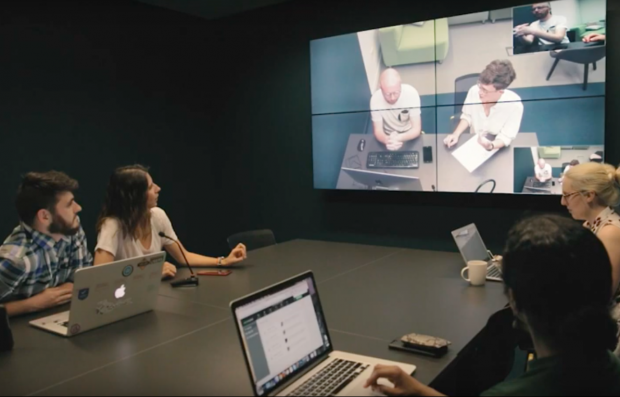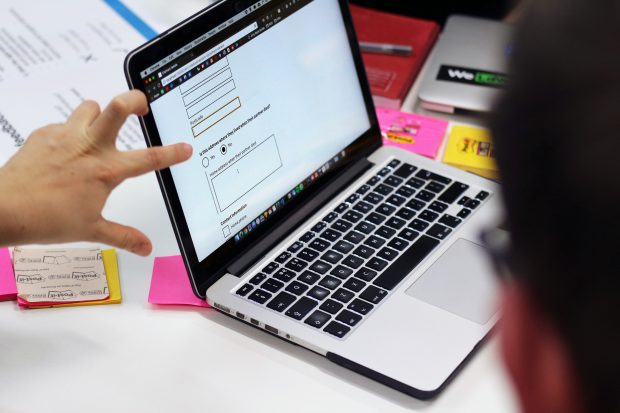
As user researchers we have a responsibility to consider the safety of participants and of ourselves.
While most user research is low-risk, we sometimes explore emotionally sensitive topics and visit participants' homes and businesses. Sometimes our research can uncover wrongdoing.
The recent cross-government user research meetup focused on safety for both participants and researchers. We looked at some current practices and how we can strengthen them.
Here are some of the topics we covered:
Making sure research participants are safe
Participant safeguarding is particularly relevant when working with vulnerable groups. For example people who are homeless, have mental health issues or are victims of domestic abuse.
However, safeguarding issues can come up even when you’re working with groups you might not consider to be ‘vulnerable’. A lot of people have experienced some kind of trauma, for example loss or being a victim of crime, and this might come up in research.
Being aware of safeguarding is useful even when you don’t expect to need it.
What constitutes ‘safeguarding’ in user research?
At the meetup we discussed protecting participant’s data and identity in line with GDPR.
Another aspect of safeguarding is ensuring participants understand what they’re signing up for, in order to give informed consent. The Service Manual says for consent to be informed, participants need to understand what your research involves.
Should we help participants who need further support?
Some people talked about wanting to help participants solve their problems. But we should be conscious of moving too far towards giving people advice.
To maintain objectivity in research, we agreed our role is to understand and not to advise. But we talked about ways we can help participants to help themselves, for example by directing them to places where they can find more information or support.
It can be helpful to speak to subject-matter experts before the research to find out if there are any sensitive topics you might encounter and to find any resources that might help. In some cases you might need to have a support worker in the room during research.
There are organisations that provide support to certain groups, such as mental health charities or victim support groups. Working with such organisations can help to ensure both the participant and the researcher get appropriate support.
Making sure researchers have emotional support
Our role as researchers is to help users tell their stories. Sometimes our research can be the first time anyone has really listened to them and their experiences using government services. They can get quite emotional about it, which can have an impact on the researchers listening to those stories.
Give yourself down-time after a session, if you need it
Running research can be draining and everyone will have their own way of decompressing - for example going to the pub or going home to the sofa. The test is whether you’re able to leave work at work and stop thinking about it in your own time.
Look after ourselves so we can safeguard others
It’s important to understand our own biases and triggers before going into any session. If you’ve personally had a upsetting past experience related to a particular topic, then decide whether you’re able to objectively listen to others tell their traumatic experiences.
Process the impact of the stories you have heard
Think about how user’s stories might affect both your analysis and your wellbeing. You could do this on your own or as a team. This is known as being reflexive.
It can be hard to find the time to reflect in the fast pace of agile working, but it’s important. An option could be to have mandatory debriefings with the team after a round of research to monitor the psychological effects that research can have on us.

Making sure you’re safe in the field
This can be an issue when researchers are going outside of the lab to meet participants.
Choose a safe space
The research location should feel safe for both participants and researchers. There are a few steps you can take:
- the Service Manual advises against going into the field alone - always take a colleague
- if possible, do not go to sites that may restrict phone signal
- make the most of existing safety procedures at a site - for example by making yourself known to the security guard in a shopping centre
Think about recruitment
It’s ok to screen participants out if you think there may be issues that will make you uncomfortable.
At the meetup, one researcher gave an example of visiting the homes of people who owned pets. She’s scared of dogs but felt unable to speak up out of concern to not alienate the participants. You can ask questions at screening to prevent these situations.
Another researcher said she was verbally abused by a participant when visiting them in a job centre. She asked the work coach about it afterwards and discovered this participant had been aggressive with other job centre staff too.
She realised this situation could have been prevented if she’d spoken to work coaches beforehand, either to uncover potential issues or to screen out participants who might make the research unnecessarily difficult.
Prepare beforehand
At the meetup, several researchers mentioned ways in which they plan for different possible scenarios before stepping outside the office. For example:
- contacting a colleague in the office to let them know when you enter a participant’s home and when you leave
- having a ‘safe word’ with the team member accompanying you, for times when you’re starting to feel uneasy and want to check whether your colleague feels the same
Building on this work
Some departments already have their own policies in place around safeguarding and disclosure.
We’re now working to gather these policies to see if we can form cross-government guidance on participant safeguarding and researcher safety, so we can help everyone involved in user research.
Follow GDS on Twitter and remember to sign up for blog alerts.